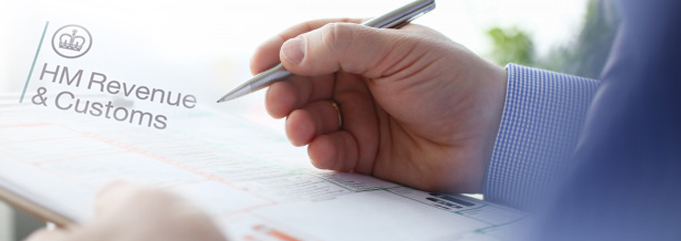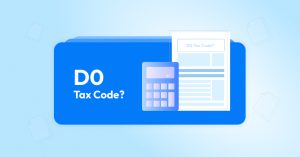The self-assessment tax return (SA100) deadline is just two weeks away; the filing pressure is already building up. But don’t worry, leave the hassle slowly on the floor, because we’ve got your back with our tips that will help you avoid any sort of mistakes that people, in general, make while preparing and filing the self-assessment tax return. So here you go…
1. Find out if you really need to file a self-assessment return
Despite being the first and the most basic tip, identifying your status has the utmost importance to figure out if you even need to file a return. The following persons need to file self-assessment tax return SA100:
- A person self-employed as a ‘sole trader’ and earning more than £1,000
- A partner in a business partnership
- A person may file a self-assessment return to claim some income tax relief
- A person may file a self-assessment return to prove he/she is self-employed, for example, to claim Tax-Free Childcare or Maternity Allowance
- A person whose only income is from wages or pension but also has any other untaxed income, such as money from renting out a property, tips, and commission, income from savings, investments, dividends, foreign income, etc.
- Most employees paying tax under the PAYE system are not required to file a tax return. However, some employees may have income that has not been taxed at source and needs to be declared to HMRC. Such a person shall do so by submitting a self-assessment tax return.
- A person who is a director of a Company and receives an untaxed salary or dividends.
- If a person receives any letter from HMRC requiring him/her to file the self-assessment tax return.
If you fall in any of the aforementioned categories then you’ll have to mandatorily file a self-assessment return.
2. Registration to HMRC’s online service


Before taking any action to file the tax returns online, first, you will have to register for HMRC’s online service. Once you enroll with the system, you will receive an activation code. The activation code is delivered within 10 days of registering for online service or requesting post expiration. Click here for signing in to HMRC’s online services. Make sure you have it in your hands well in advance because the activation code takes more than a week to arrive.
3. Claim expenses correctly


It’s important to be clear about the fact that only business expenses can be claimed from the business profits. In other words, you are not allowed to claim your private expenses. Suffice it to say, not all the business expenses can be claimed alike, some can be claimed partially and/or some over the years instead of claiming in one go.
4. Have proper paperwork in place
While working throughout the year, there are a number of papers and documents executed. These hold a crucial use at the time of finalisation of accounts and filing of tax returns. For instance, the various PAYE forms P60, P45, P11D will help you in completing your self-assessment. Other papers include receipt of any amount donated to charity, expense records, mileage records, number of hours spent working at home, bank statements, invoices, receipts, etc.
5. Enter correct figures
A number here or there, a number less or extra, and like mistakes can result in drastic blunders. You might as well end up overpaying or underpaying taxes, both of which will impact you negatively. It is very important to double-check the figures you enter into your tax return.
6. Take some help from an accountant


The easiest way to stay stress-free while the self-assessment hassle prevails is to sign up for the services of an expert in the field. All you’ll have to do is to provide all the financial data you have and let them prepare and submit the tax return to HMRC on your behalf. This would ensure that none of the important information has been missed and you can sit back and relax, rest assured since the information will be in the hands of an expert. Moreover, if the business’ affairs are complex there is a high probability that you might miss out on valuable reliefs and allowances you might be unaware of. Click here to read our blog on choosing the right accountant for your business.
7. National Insurance and Unique Taxpayer Reference number
NI number basically helps in matching the national insurance contributions made against the name of the person. This number also acts as a reference ID when you need to contact the Department of Work and Pension and HMRC with regard to national insurance. Similarly, the UTR number is a 10-digit code that helps HMRC in ensuring that everyone pays what they owe and receives any money back that they might be entitled to in terms of taxes.
Both NI number and UTR are included in the return and due to the key role they play, it is important to ensure that they are correct.
8. Enclose all relevant supplementary pages
Supplementary pages are used by HMRC to fetch additional information from the assessee, not covered in the main return. They are part of the tax return and as important as the main return. Supplementary pages include:
- Income from UK property
- Foreign income and gains
- Income from employment
- Capital gain summary etc.
9. Stick to deadlines to avoid penalties


The deadline for filing a paper-based self-assessment tax return is 31 st October following the relevant tax year while for an online return it is the 31 st January following the relevant tax year.
For example, for the tax year 6 April 2018 to 5 April 2019, the deadline for filing a paper self-assessment tax return was midnight 31 October 2019, and the deadline for an online tax return shall be midnight 31 January 2020.
Further, the due date for paying self-assessment tax returns for the tax year 2018-19 is Midnight 31 January 2020. This means filing the self-assessment tax return and paying off taxes both need to be executed by midnight 31 January 2020.
Non-filing or delayed filing of a tax return and payment of taxes attract penalties which have been mentioned below.
10. Penalties for non-filing or delayed filing of tax return


Ensure that the tax return is filed and the taxes paid well before time or else you might attract penalties from HMRC.
Penalties for non-filing or delayed filing of tax returns:
| Period for which return filing is delayed | Amount of penalty |
|---|---|
| Upto 3 months | £100 |
| After 3 months upto next 90 days | £10 per day |
| More than 6 months late | £300 or 5% of our estimate of your liability to tax (whichever was the higher) |
| More than 12 months late | Another £300 or 5% of our estimate of your liability to tax, (whichever was the higher) |
Further, there are penalties for non-payment or delayed payment of tax too. They are as follows:
| Period for which tax payment is delayed | Amount of penalty |
|---|---|
| By 30 days | 5% of tax unpaid after 30 days |
| By 6 months | Another 5% of tax unpaid after 6 months |
| By 12 months | Another 5% of tax unpaid after 12 months |
Are you ready??
We hope these tips would prove to be a savior in all this last moment hassle and help you to avoid potential mistakes. If you wish to have any further assistance with the preparation and filing of your self-assessment tax return give us a call on 020 3960 5080 or write to us at info@debitam.com. You could also drop your query here.












